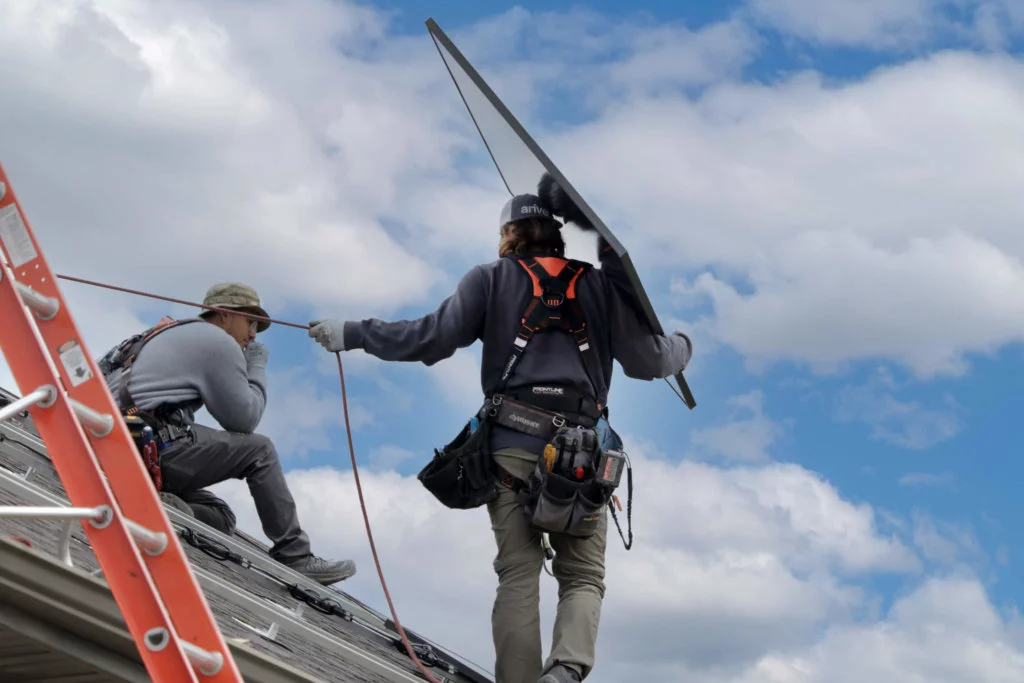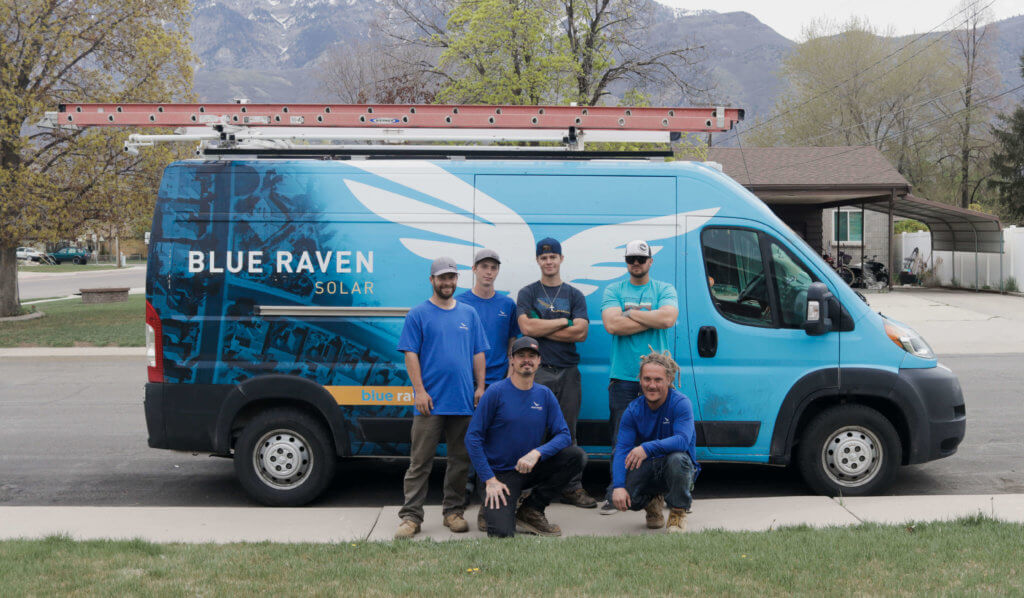
Going solar can be complex, especially with the amount of new vocabulary, terms, and definitions you will come across. Because we would never want to leave you with unanswered questions or too many Google searches, here is a comprehensive list of solar terms to help guide you on your solar journey.
Read on to become an expert in industry jargon.

Solar Terms and Definitions
Alternating Current (AC): A flow of electric charge that periodically reverses and repeats its cycle indefinitely. This current is measured in Hertz (Hz). This is the type of energy current that powers most of your home.
Direct Current (DC): A flow of electric charge that only flows in one direction in a steady voltage. Used for supplying power to electrical devices and to charge batteries. This is the type of energy current that a solar panel system produces before being converted to an alternating current (AC) by an inverter.
Electric Bill: You’re probably more familiar with this one, but just in case, this is a charge from your local utility company for the energy your home consumes in a certain period, usually monthly. Most solar panel systems will still have an electric bill as they remain connected to the utility grid.
Energy Storage: In solar energy, batteries can store power not being used for the home’s electricity that needs to be used later during power outages or to use during peak time periods when electricity is at its most expensive.
Federal Investment Tax Credit (ITC): Implemented when a homeowner purchases a solar panel system, crediting the homeowner up to 30% of the cost of their system on their federal income taxes.
Gigawatt: A unit of electrical power equal to one billion watts, 1 million kilowatts, or 1,000 megawatts.
Greenhouse Gases: Heat-trapping gases that are released into the air from the use of nonrenewable energy resources like fossil fuels. These gases increase the rate of climate change and consist largely of carbon dioxide, methane, nitrous oxide, and synthetic gases.
Kilowatt (kW): Unit of electricity most used to measure power. Power is the rate at which something produces or uses energy. Equal to 1,000 watts.
Kilowatt-hour (kWh): Unit of electricity most used to measure energy capacity, or the amount of energy produced or used per hour. Customers pay for electricity by their usage measured in kWh.
Local utility: Where electricity can be bought by consumers and where local power is generated, though many companies transport their energy from outside locations.
Megawatt (MW): A unit of electrical power that is equal to 1 million watts or 1,000 kilowatts.
Microinverter: This device converts the DC of energy from solar panels into an AC of energy that the home’s electrical system can use to power its appliances.
Net Metering: A system in which solar owners can send their excess energy production into the local utility grid and be credited. Many states have net metering requirements.
On-grid: Any system that is connected to the local utility grid.
Off-grid: A solar panel system that is designed to operate completely independent of the utility grid.
Photovoltaic (PV): The conversion of light into electricity using semiconducting materials. Most types of solar panels are made up of photovoltaic cells.
Power Purchase Agreement (PPA): Similar to renting panels, these allow for panels to be installed on a home and for the homeowner to pay a per kilowatt-hour rate until the agreement expires. Blue Raven Solar does not offer PPAs for several reasons.
Service Transfer: If you decide to sell your home or buy a home with Blue Raven Solar panels installed, the energy service can be transferred to the new homeowner.
Solar Array: A customized design of panels on a roof.
Solar System: The entire solar panel production system: panels, microinverter, installation materials, and any other materials necessary to complete a working electrical system powered by solar energy.

Now What?
There might be more words and phrases you come across while researching solar, we hope this compilation helped clear a few things up. And, of course, if you have any questions about anything listed above (or not listed), do not hesitate to contact one of our solar experts today!
Our goal is to make your solar journey seamless, and with this knowledge and a Blue Raven Solar expert on your side, you are well on your way to a simple, hassle-free switch to clean, renewable energy.
Powering your life with the sun’s rays is one of the best ways you can contribute to reducing pollution and to increasing your energy savings. Each system offsets approximately 160 tons of carbon dioxide emissions, bringing cleaner air to the planet, and homeowners can save upwards of $50,000 on energy over the lifetime of their solar system.
Discover more advantages of making the switch to solar here and check out our FAQ for more information.



Sorry, the comment form is closed at this time.